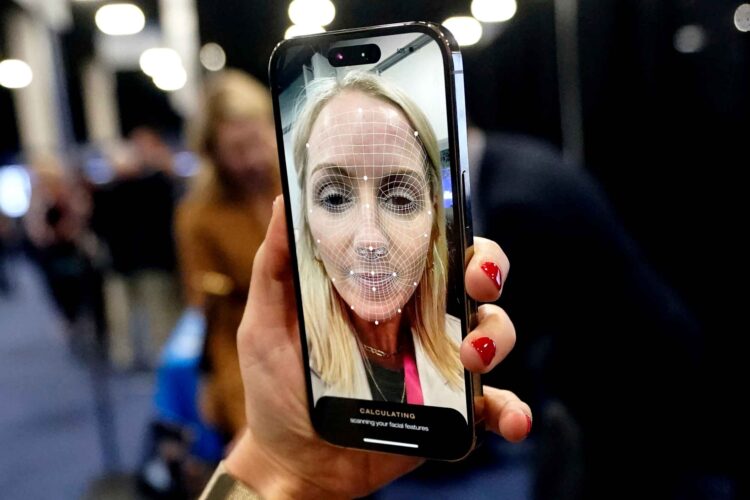A new scientific study purports to have determined that political orientation can be deduced simply through a facial recognition analysis, otherwise known as physiognomy, powered by artificial intelligence (AI). This held even when they controlled for expressions, demographics, and various forms of self-expression. The scientists are warning that AI is therefore “more threatening than previously thought” and represents “serious challenges to privacy.”
Lead researcher Michal Kosinski explained to Fox News Digital that 591 individuals submitted political orientation surveys before having their faces’ biometric data scanned by the AI.
“Participants wore a black T-shirt adjusted using binder clips to cover their clothes,” the team wrote. “They removed all jewelry and – if necessary – shaved facial hair. Face wipes were used to remove cosmetics until no residues were detected on a fresh wipe. Their hair was pulled back using hair ties, hair pins, and a headband while taking care to avoid flyaway hairs.”
Learn the benefits of becoming a Valuetainment Member and subscribe today!
Then they ran the facial analysis algorithm, VGGFace2, which is programmed to recognize “face descriptors, or a numerical vector that is both unique to that individual and consistent across their different images.” The tool then compares the faces with others in the database, which includes information about their self-reported political orientation. It runs an analysis to find matches between the previously unseen faces with the facial descriptors of those in the database.
The study found that “conservatives tended to have larger lower faces.” Citing previous studies, the researchers note that one’s face can affect the way others treat them, which then affects their psychological development.
Secondly, both psychological and facial traits can have origins in environmental conditions, hormones, and genes. Being exposed to nicotine and alcohol in the womb affects “facial morphology” and cognitive ability, which is correlated with political orientation. Studies have found that liberals “smile more intensely and genuinely,” leaving wrinkle patterns, while conservatives tend to have greater self-discipline and thus show fewer signs of substance abuse and poor diets.
The ability to predict faces works across nations, age groups, sexes, ethnicities, and facial expressions. The study received approval from the Stanford University Institutional review board.
“I think that people don’t realize how much they expose by simply putting a picture out there,” said Kosinski, who works as an associate professor of Organizational Behavior at Stanford University’s Graduate School of Business. “Scholars, the public, and policymakers should take notice and consider tightening policies regulating the recording and processing of facial images,” his study read.
“We know that people’s sexual orientation, political orientation, religious views should be protected,” Kosinski also told Fox. “It used to be different. In the past, you could enter anybody’s Facebook account and see, for example, their political views, the likes, the pages they follow. But many years ago, Facebook closed this because it was clear for policymakers and Facebook and journalists that it is just not acceptable. It’s too dangerous.”
“But you can still go to Facebook and see anybody’s picture,” he went on. “This person never met you, they never allowed you to look at a picture, they would never share their political orientation […] and yet, Facebook shows you their picture, and what our study shows is that this is essentially to some extent the equivalent to just telling you what their political orientation is.”
“Perhaps most crucially, our findings suggest that widespread biometric surveillance technologies are more threatening than previously thought,” the study stressed. “Previous research showed that naturalistic facial images convey information about political orientation and other intimate traits. But it was unclear whether the predictions were enabled by self-presentation, stable facial features, or both. Our results, suggesting that stable facial features convey a substantial amount of the signal, imply that individuals have less control over their privacy.”
Read the full study here.
 Shane Devine is a writer covering politics and business for VT and a regular guest on The Unusual Suspects. Follow Shane’s work here.
Shane Devine is a writer covering politics and business for VT and a regular guest on The Unusual Suspects. Follow Shane’s work here.


















Add comment